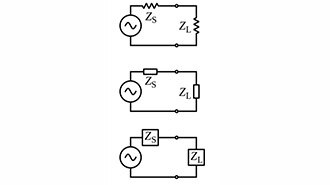How to turn Mini Tesla Coil into a Powerful SSTC
2024-05-20 | By Mirko Pavleski
License: General Public License Voltage Arduino
Some time ago I bought a mini Tesla coil kit. It's a very simple project that I made in a very short time and immediately after switching it on it worked correctly. If I bring a compact fluorescent lamp (CFL) closer to a certain distance, it lights up under the influence of the electric field generated by the device.
However, even at the maximum recommended voltage of 24 volts, the length of the spark is not greater than 1-2 millimeters. In fact, it is not a real spark, but a small plasma flame. It even contains an audio modulator, so if we bring a music signal to the input, the plasma reproduces sound, unfortunately with a very low intensity, barely audible. So, I got the idea to turn this little device into a real Tesla coil with some reasonable visible spark length.
SAFETY NOTE: Please do not attempt to recreate the experiments shown in this project unless you are familiar with High Voltage Safety Techniques! Direct Current even above 60V may be lethal, even when the AC supply voltage has been disconnected due to the stored energy in the capacitors.
The secondary coil contains only 350 turns wound on a body with a diameter of 2cm.
This means that its resonant frequency is approximately 3.5 MHz. By installing a metal topload disc, that frequency will be slightly reduced. One way to improve the results is a higher supply voltage and consequently a more powerful driver circuit. As in the original case, I decided on a self-oscillating type of Tesla coil driver as the simplest and easiest to tune, but this time with a powerful mosfet (IRFP260) and twice the voltage of 50 volts, instead 24 volts. If we use a switching power supply (full wave rectifier) the result is slightly better, but the consumption is enormous and the mosfet is very hot. To avoid this, it is necessary to use an AC voltage source (transformer) and an unfiltered half-wave rectifier with one diode and a small value capacitor.
In this case, it obtained a relatively large spark with reduced consumption and a much cooler mosfet. Now the modified Tesla coil is even simpler than the original and consists of the following components:
- The secondary coil remains the same, only a small aluminum disk has been added as a topload, although the device works without this addition.
- The primary coil is wound on a body with a diameter of 4 cm and consists of two turns of copper wire with a diameter of 2.5 millimeters.
- Power Mosfet, I specifically use BUZ325 because I have it in stock, but you can use IRFP260. - 5A diode and capacitor 1microfarad 250V as a half-wave rectifier - and 1k5 resistor and 10k Potentiometer All of this is placed in a suitable plastic housing which is actually part of a plastic plumbing pipe. On the lower part, there are small openings through which air can flow for more efficient cooling of the semiconductors.
In the first test it is desirable to use a lower supply voltage of 15 to 20V and with a CFL bulb close to the secondary to test if the circuit oscillates. If the bulb does not light up, we need to connect the wires of the primary in reverse.
And now let's see how the device works in real conditions under maximum load. As you can see, the current does not exceed 1 Ampere, which is about 50 watts, identical to the consumption of the original device that uses 24V/2A.
If we add to this simple circuit the Staccato interrupter the consumption will be extremely low and the mosfet is almost cold. Let me mention that you can find instructions for making such a device in one of my previous videos.
And finally, a short conclusion. With this experiment, I tried to turn this small, cheap, and almost non-functional device into a real Tesla coil that generates sparks with a length of several centimeters without increasing consumption. Since the audio modulation part is omitted, the circuit diagram is even simpler than the original. SAFETY NOTE: Please do not attempt to recreate the experiments shown on this video unless you are familiar with High Voltage Safety Techniques! Direct Current even above 60V maybe lethal, even when the AC supply voltage has been disconnected due to the stored energy in the capacitors. I have no responsibility on any hazards caused by the circuit. Be very careful. This is a humble request.

Have questions or comments? Continue the conversation on TechForum, DigiKey's online community and technical resource.
Visit TechForum














 中国
中国